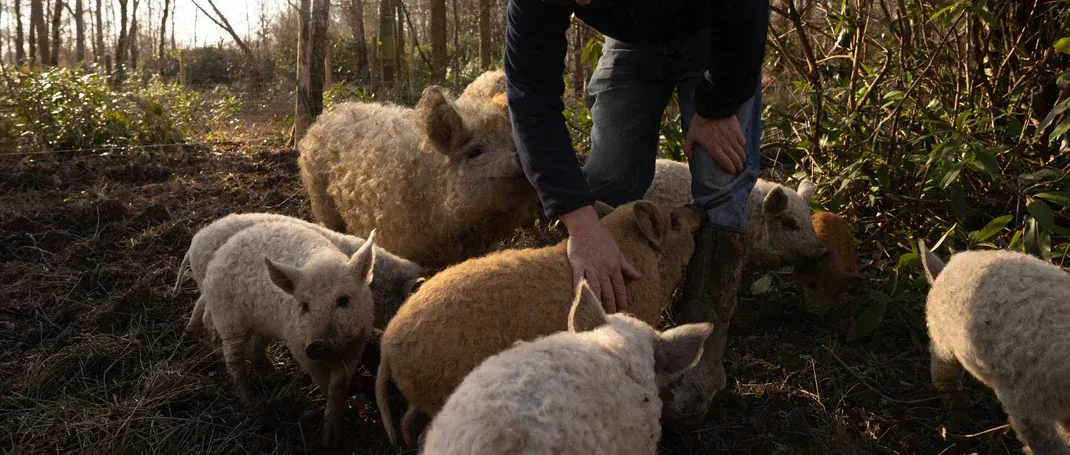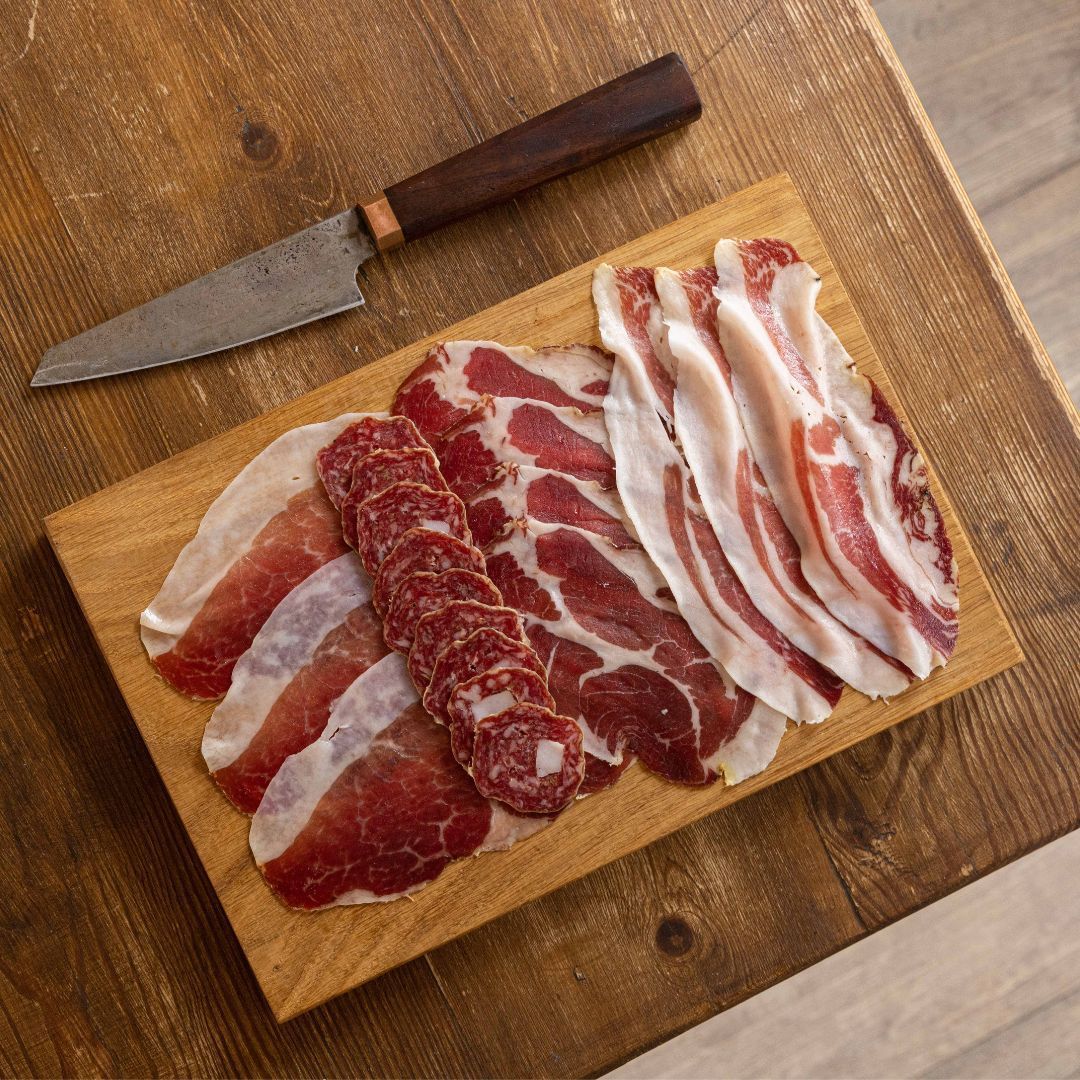Webinar: Woodland Pigs & Charcuterie
Zoom online
8pm to 9pm - Tuesday 1st April 2025

As more UK farmers explore regenerative principles and look to stack enterprises that align with their land’s natural potential, woodland pig farming is emerging as an option with surprising depth. Blending ecology, animal husbandry, and premium food production, this model offers both environmental and economic rewards—particularly when grounded in agroforestry.
At Beal’s Farm in East Sussex, Melissa Masters and Phil Beal have taken a bold approach: rearing rare-breed Mangalitsa pigs beneath mature oak canopies, using the trees not just for shelter but as part of a living, working ecosystem.
Their work is now the focus of an Innovate UK-funded research project—designed to study how pigs can be integrated into agroforestry systems in ways that regenerate soil, enhance biodiversity, and produce exceptional food.
The Mangalitsa pig, with its distinctive woolly coat and richly marbled meat, is already well known among charcuterie producers. But this isn’t just about niche produce. The team at Beal’s Farm are proving that when managed with care, woodland pigs can serve a wider purpose: maintaining tree cover through natural rooting and coppicing behaviours, fertilising soils in situ, and activating underused woodland into a productive, balanced system.

Learn how Melissa and Phil make world class charcuterie that has renowned chefs such as Marcus Wareing - Marcus Restaurant in Knightsbridge
"The Mangalitsa is the perfect pig for charcuterie. The team at Beal's Farm have taken it to another level"
The project, in collaboration with Cranfield University and AgriSound, is taking a scientific lens to this traditional-meets-modern approach. Key areas of study include:
Soil Health – Through 80 samples analysed for microbial life, carbon content, and nutrient balance
Pollinator Biodiversity – Using bioacoustic detection to monitor insect activity
Tree & Habitat Monitoring – Assessing the effects of pig activity on woodland structure and regeneration
Animal Welfare – Behavioural tracking and welfare protocols, comparing traditional vs. woodland-based systems
For those practising or considering Holistic Planned Grazing, this work adds valuable insight into how multi-species and integrated systems can be extended beyond open pasture. It also opens the door to stacked enterprises—using underutilised woodlands not only for pigs, but potentially for fruit, nut, or timber production alongside.
What’s compelling is that this isn’t theory. Beal’s Farm runs a profitable charcuterie business that supplies everyone from local cafes to Michelin-starred chefs, all grounded in the narrative of field-to-fork provenance and agroecological integrity.
This project isn’t just producing premium food—it’s generating data, validating ecological assumptions, and building a replicable model that other farmers can adapt. As part of 3LM’s mission to support land managers in designing holistic, regenerative systems, we believe this is one to watch closely.
Woodlands aren’t just for walking or are to be thought of as a non productive part of the farm, with a reframe, they can be the future of resilient, profitable, nature-aligned food production and conservation all in one.

